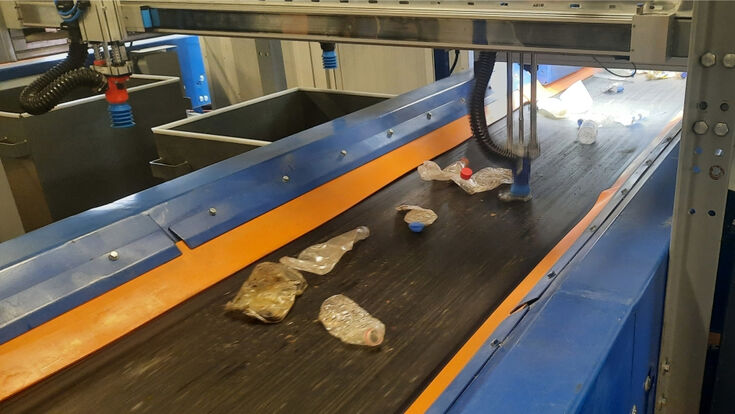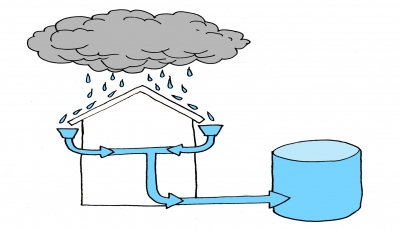Fostering Resource Efficiency and Environmental Defense Through Liquid Waste Removal Programs
In the world of ecological stewardship, the monitoring of liquid waste stands as a critical time where resource effectiveness and environmental management merge. Liquid waste elimination programs play a critical function in protecting our ecological communities and making certain lasting advancement practices. By diligently resolving the disposal of fluid waste, neighborhoods and industries can not just reduce possible hazards but also unlock opportunities for reusing and repurposing useful resources. As we browse the intricacies of waste administration in a quickly progressing world, the harmony between cutting-edge modern technologies, strict laws, and forward-thinking techniques comes to be significantly vital. Through a lens of proactive involvement and tactical insight, the landscape of fluid waste management introduces a tapestry of difficulties and possibilities that beckon us to check out the path towards a greener and more lasting future.
Relevance of Fluid Waste Elimination
The value of fluid waste elimination hinges on its crucial function in preserving ecological health and wellness and safeguarding public wellness. Fluid waste, if not effectively taken care of, can position severe risks to ecosystems, water sources, and human health. Through efficient elimination procedures, harmful compounds such as pathogens, contaminants, and chemicals are avoided from contaminating the setting and creating destructive results.
Appropriate fluid waste removal also aids in avoiding the spread of illness and minimizing the potential for groundwater contamination. By securely taking care of fluid waste, the danger of waterborne health problems and pollution-related wellness concerns is significantly lessened - Reclaim Waste. Furthermore, effective elimination methods contribute to maintaining the overall cleanliness and aesthetic appeals of neighborhoods, thus boosting the lifestyle for locals
Additionally, liquid waste removal plays an important role in supporting sustainable development and ensuring conformity with environmental regulations. By sticking to correct waste monitoring procedures, sectors and businesses can reduce their ecological impact and demonstrate business responsibility. Ultimately, purchasing robust fluid waste elimination programs is important for advertising environmental stewardship and fostering a healthier, much safer future for all.

Advantages of Effective Disposal
Reliable disposal of fluid waste not just safeguards ecological health and wellness and public health yet additionally yields many benefits that prolong past immediate containment actions. One key benefit of reliable disposal is the decrease of air pollution in water bodies and dirt. By correctly handling fluid waste, the threat of contamination decreases, preserving environments and safeguarding biodiversity. Furthermore, effective disposal techniques add to resource conservation. With procedures like recycling and energy recovery, important sources can be drawn out from liquid waste, advertising sustainability and lowering the strain on resources. Taking on effective disposal techniques can lead to cost savings for areas and businesses. By enhancing waste administration processes, companies can enhance procedures, lessen disposal costs, and potentially create income via the sale of recycled materials. In general, the advantages of efficient liquid waste disposal are complex, encompassing ecological defense, resource efficiency, and financial advantages.
Technologies for Waste Therapy
Making more helpful hints use of innovative technologies for waste treatment plays an essential role in making sure the effective management and safe disposal of liquid waste. One of the vital innovations employed in liquid waste treatment is biological therapy.
Additionally, thermal therapy techniques such as incineration can be employed for the total damage of harmful parts in fluid waste. Generally, the integration of varied therapy innovations ensures extensive and environmentally friendly administration of fluid waste.
Role of Rules and Compliance
In the realm of fluid waste administration, adherence to regulatory frameworks and compliance standards is paramount for protecting ecological wellness and sustainability. Laws play a crucial role in controling the appropriate handling, treatment, and disposal of liquid waste to avoid harm to communities and human health and wellness. By developing clear standards and requirements, regulative bodies ensure that businesses and individuals included in liquid waste administration run in an ecologically accountable fashion.
Conformity with these laws is not only a lawful requirement but additionally an honest responsibility to safeguard the environment for future and current generations. It includes applying ideal methods in waste collection, disposal, therapy, and transportation to lessen environmental influence and promote resource performance. Non-compliance can result in penalties, lawsuit, and reputational damages for companies, highlighting the importance of maintaining regulative standards.

Future Fads in Waste Monitoring

One more essential trend in waste administration is the fostering of innovative data analytics and fabricated knowledge to enhance waste collection paths, boost arranging processes, and improve total operational efficiency. These innovations enable waste administration business to make data-driven choices, bring about set you back visit our website financial savings and ecological benefits.
Additionally, there is an expanding focus on the development of decentralized waste monitoring systems, such as onsite treatment centers and mobile waste handling devices. These systems offer adaptability and scalability, enabling much more efficient waste handling in varied environments.
Conclusion
Finally, fostering resource effectiveness and ecological protection via liquid waste elimination programs is critical for lasting growth. Reliable disposal methods, advanced technologies for waste treatment, and stringent regulations play key duties in reducing environmental effect. Looking in advance, continuous technology and improvement in waste management techniques will certainly be essential for dealing with the growing obstacles of liquid garbage disposal.
In the world of environmental stewardship, the monitoring of liquid waste stands as an essential point where resource performance and ecological defense converge (Liquid waste removal).Making use of sophisticated innovations for waste treatment plays a critical function in making certain the efficient management and secure disposal of liquid waste.In the realm of liquid waste administration, adherence to regulative structures and conformity criteria is paramount for safeguarding ecological health and sustainability.In final thought, cultivating source efficiency and environmental security with fluid waste elimination programs is critical for lasting development. Looking in advance, continuous advancement and renovation in waste monitoring methods will certainly be important for addressing the growing obstacles of liquid waste disposal